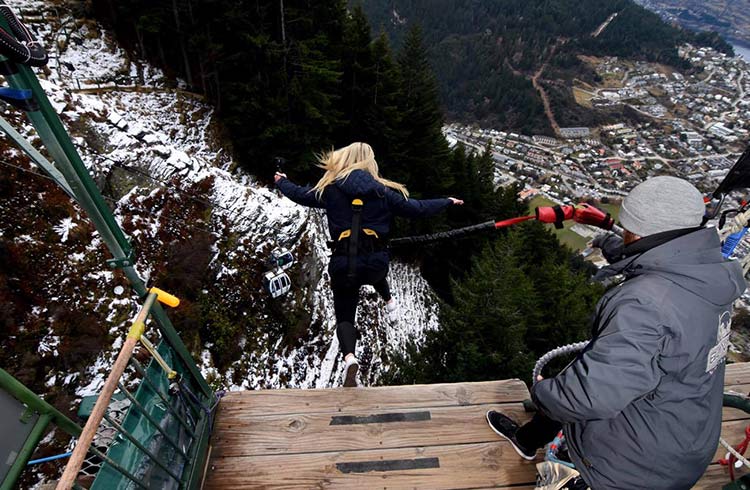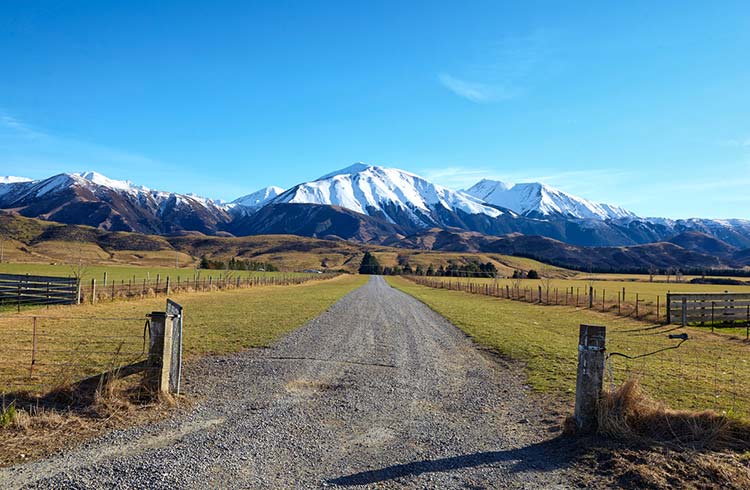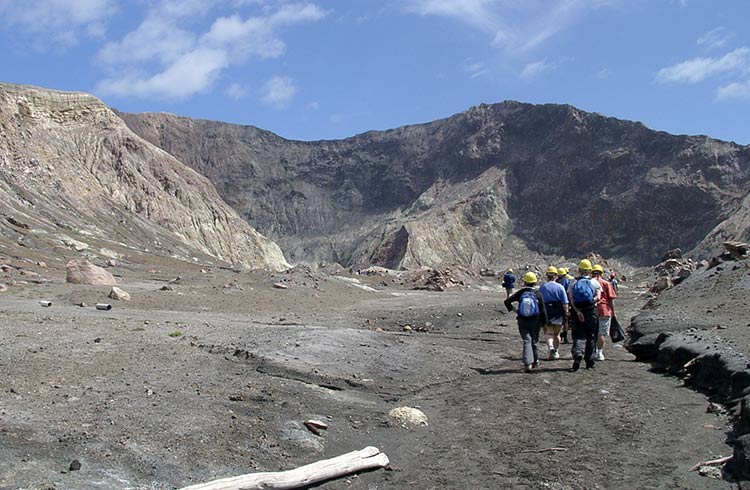Adventure in New Zealand: A Thrill-Seeker's Safety Guide
Before you get strapped into the bungy harness, find out what real dangers you face and how to stay safe on an adventure in New Zealand.
 Photo © Milly Brady, wheresmildo.com
Photo © Milly Brady, wheresmildo.com
- Seeking extreme adventures in New Zealand
- What you need to know about previous disasters
- Why jet boats are a cause for concern
- Adventure on the Mountains
Seeking extreme adventures in New Zealand
So, you want to go bungy jumping, sandboarding and jet boating in New Zealand? The more extreme the sport, the greater the risk of accident or death. But, you've already heard that from your family, right?
Do your research on various different adventure tour operators before you pay the price – literally. Generally speaking, adventure activities in New Zealand will not come cheap, but they'll come with a whole rush of adrenalin.
Weigh up the pros and cons, are you trying to prove something to a mate? Are you really excited by taking part in the activity? If you answered yes to the first and no to the second, back away. Save your money for something else.
If you're still with us, here's what you need to know.
What you need to know about previous disasters
In 2019, the volcano on White Island unexpectedly erupted, leaving many people on the island at the time injured, and some dead. The inherent risks associated with hiking on active volcanic landscapes is just that – volcanoes may erupt at any given time, but usually we are given warnings.
New Zealand is located in a seismically active zone, and has experienced huge earthquakes in the past. It's hard to predict earthquakes, so the best way to be prepared is to know how to stay safe when an earthquake strikes.
But, going back to non-natural disasters, in 2009, a British traveler died from head injuries he received while sand boarding, and another drowned while river boarding – which is water rafting, but with a board instead of a raft.
Other activities include ice climbing and heil-biking – where you're taken up really high and forced to navigate your way back down to ground.
Normal boating and water sports have also produced some serious injuries and casualties in New Zealand. A Chinese tourist died in September 2008 when the jet boat she was riding in flipped over.
In November 2010, German, US and British tourists were taken to the hospital after a jet boat crashed into a cliff wall in Queenstown.
In February 2011, a Canadian traveler died in a jet boat crash.
Another boating collision where one woman was seriously injured occurred days later in Marlborough Sounds, at the northern part of the South Island.
If you look at the stats, fun weighs out death and injury. However, it's important that travelers don't add to the risk by being silly in serious situations. Always listen to the safety briefing before getting started, and follow the guide's instructions. If there's a warning that a volcano is going to erupt, don't go there. Listen to the advice from Government travel advisories and local guides.
Why jet boats are a cause for concern
The NZ Transport Accident Investigation Commission has investigated about 20 jet boat accidents since 1995. The issues mostly involve crashes with other boats or inanimate objects, or incidents where a boat flips over.
More often than not, tourists are involved. Officials investigated possible safety breaches contributing to the rate of accidents, and since have investigated stricter safety regulations. Most of the companies are located in and around Queenstown, and were alleged to not be meeting minimum requirements to operate.
Overlapping regulatory bodies are one of the biggest reasons cited for confusion over operational codes and safety standards.
Adventure safely on the mountains
Mountain activities can also bring their own sets of hazards related to avalanches and extreme weather. Snow and wind can turn a path that seemed completely safe, into something you don't want to go down.
Rivers in particular are one of the biggest hazards when outdoors, and you must take careful assessment before trying to cross one.
The Mountain Safety Council of New Zealand offers five tips for safety when doing anything in the rocky peaks above:
- Tell someone where you're going
- Pack for changing, cold weather
- Bring supplies
- Give yourself enough time
- Don't push yourself.
The council recommends taking a communication device designed for backcountry transmission, like a mountain radio or transceiver. Also consider a Personal Locator Beacon, which sends off an UHF radio signal to let rescuers know where you are.
Related articles
Simple and flexible travel insurance
You can buy at home or while traveling, and claim online from anywhere in the world. With 150+ adventure activities covered and 24/7 emergency assistance.
Get a quote

No Comments